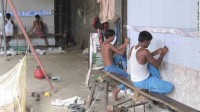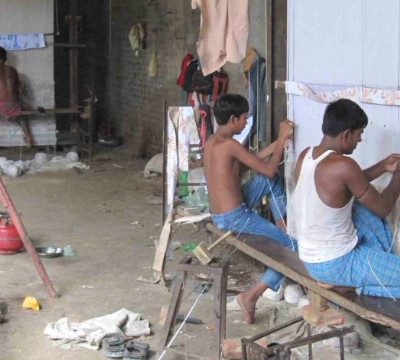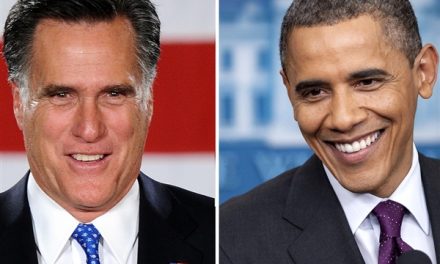 India is World’s Largest Exporter of Hand-Made Carpets, Which Are Sold In Many Major U.S. Retail Chains
India is World’s Largest Exporter of Hand-Made Carpets, Which Are Sold In Many Major U.S. Retail Chains
Cambridge, Mass. – January 28, 2014 – Harvard University’s FXB Center for Health and Human Rights today released a report on the largest-ever first-hand investigation into slavery and child labor, which focuses on the hand-made carpet sector of India. The report – titled “Tainted Carpets:
Slavery and Child Labor in India’s Hand-Made Carpet Sector” – explores well beyond the traditional “Carpet Belt” region of Uttar Pradesh to cover nine states in northern India where production sites belonging to 172 different carpet exporters have been found to practice various forms of illegal forced labor.
Key findings of the report, which was written by Siddharth Kara, a Harvard adjunct faculty member and expert on contemporary slavery and human trafficking, contradict claims that slavery and child labor have been eliminated from the sector, and include the following:
· 3,215 cases of forced labor under Indian law, with an estimated industry prevalence of 45%, including:
- 2,612 cases of forced labor under international law, with an estimated industry prevalence of 37%;
- 2,010 cases of bonded labor, with an estimated industry prevalence of 28%;
- 1,406 cases of child labor, with an estimated industry prevalence of 20%;
- 286 cases of human trafficking, with an estimated industry prevalence of 4%.
The report documents that: “the working conditions uncovered were nothing short of subhuman. Factories and shacks were cramped, filthy, unbearably hot … filled with stagnant and dust-filled air, and contaminated with grime and mold.
Some sites were so filthy, pungent, and dangerous that the researchers were afraid to enter due to the risk to their safety.” The workers in these conditions also endured the following:
- An average hourly wage for carpet workers of $0.21;
- Chronic underpayment of minimum wages by 40% to 65%;
- Women and children paid 12% to 32% less than adult males;
- 99.9% of cases belonging to minority ethnicities or low caste groups;
- An average work day of 10 to 12 hours, six to seven days a week.
The major carpet exporters who were found to be using slave-like labor will be contacted and invited to collaborate with the FXB Center in an effort to eradicate these practices. Similarly, the major retail chains in the United States who have relationships with these carpet exporters will be encouraged to closely examine their supply chains to ensure that they are free of slave-like labor exploitation.
The U.S. companies include Macy’s, Neiman Marcus, Bloomingdale’s, Target, Sears, Crate & Barrel, Williams-Sonoma, Pottery Barn, Ethan Allen, IKEA, Home Depot, Walmart, JC Penny, Pier 1 Imports, ABC Carpet and Home, and Cost-Plus, among others.
In total, $306 million (declared import value) worth of hand-made carpets were imported by the United States from India in 2012, which amounts to a retail value of between $1.8 and $3.1 billion.
The report contains a series of recommendations, which include, among others, elevating efforts to reliably and independently certify the carpet industry supply chain, increasing investigations and prosecutions of exploiters, supporting and empowering vulnerable communities, raising the minimum wage, enforcing minimum wage payments, making additional payments for overtime, and increasing consumer awareness.
“U.S. and Western consumers must become more aware of the atrocious conditions under which their carpets are woven,” said Siddharth Kara, the report’s author. “Those conditions must then be improved in a way that does not cause any ill effects to local populations.”
The complete report is available at http://fxb.harvard.edu. For additional information or to speak with Siddharth Kara, please contact Bonnie Shnayerson, FXB Communications, atbshnayer@hsph.harvard.edu or (617) 432-7134.
About the FXB Center: The François-Xavier Bagnoud (FXB) Center for Health and Human Rights at Harvard University is the first academic center to focus exclusively on the practical dynamic between the issues of health and human rights. Founded in 1993 through a gift from the Association François-Xavier Bagnoud, the FXB Center is a world leader in building a conceptual basis of the right to health and driving advocacy initiatives to incorporate human rights norms into international health policy. Read more here: http://fxb.harvard.edu/fxb-center-overview/.
Appalling Working Conditions
in India’s Carpet Factories
A CNN Report
Carpets woven by slaves could be on sale in some of America’s best known stores. That’s according to an independent investigation into the carpet industry in India. It estimates that 45 percent of workers are victims of forced labor and 20 percent are under 18 years old.
CNN News contacted some of the importers and exporters named in the report who denied the use of slave labor. Siddharth Kara – who led the research and is one of the world’s foremost experts on modern-day slavery – spoke to Becky about what he uncovered.
Click on this link to watch the video







